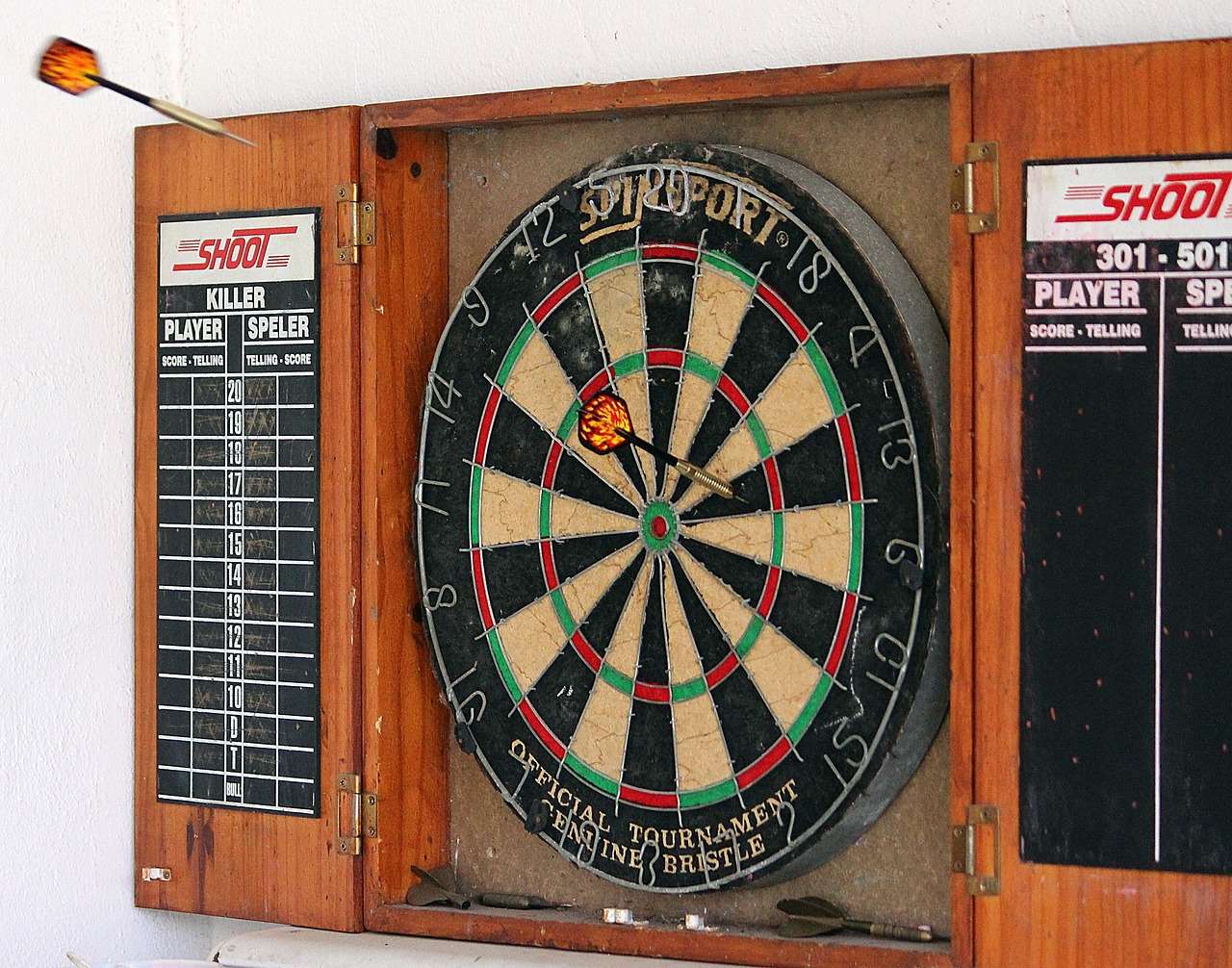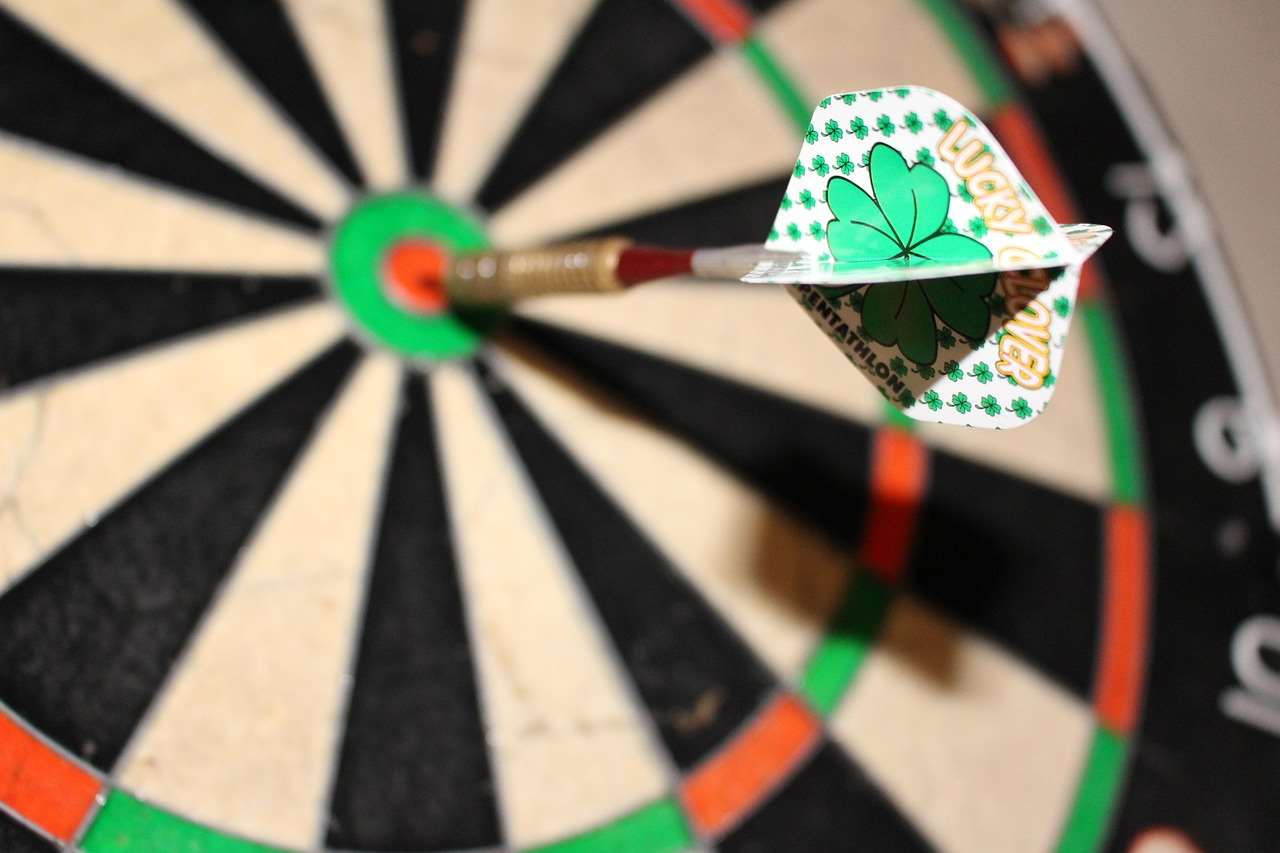Breathing for dealing with mistakes is a surprisingly effective technique for regaining composure and improving performance after an error. This article will explore how controlled breathing can help you manage the emotional fallout from mistakes, improve your focus, and ultimately, perform better. We’ll also delve into related strategies and offer practical advice you can implement immediately.
⚠️ Still Using Pen & Paper (or a Chalkboard)?! ⚠️
Step into the future! The Dart Counter App handles all the scoring, suggests checkouts, and tracks your stats automatically. It's easier than you think!
Try the Smart Dart Counter App FREE!Ready for an upgrade? Click above!
Mistakes are inevitable, whether you’re a seasoned professional or just starting out. The key isn’t to avoid making them, but to learn how to recover effectively. And that’s where the power of breathing for dealing with mistakes comes in.
Breathing for Dealing with Mistakes: The Power of the Breath
When we make a mistake, our bodies often react with a surge of stress hormones. Our heart rate increases, our breathing becomes shallow and rapid, and we might experience feelings of anxiety or frustration. This physiological response can impair our ability to focus and make sound decisions. Breathing for dealing with mistakes offers a simple yet powerful way to counteract this stress response. By consciously controlling our breath, we can calm our nervous system, reduce anxiety, and regain clarity of thought.

Deep, slow breaths activate the parasympathetic nervous system, which is responsible for the “rest and digest” response. This counteracts the effects of the sympathetic nervous system (“fight or flight”) which is activated by stress. The more control we have over our breathing, the better equipped we are to handle stressful situations, including the aftermath of a mistake.
Practical Breathing Exercises
There are several breathing techniques you can use. One of the simplest is the 4-7-8 technique: Inhale deeply through your nose for a count of four, hold your breath for a count of seven, and exhale slowly through your mouth for a count of eight. Repeat this several times until you feel calmer. Another effective method is diaphragmatic breathing or belly breathing, focusing on expanding your belly with each inhale and contracting it with each exhale. This type of breathing promotes relaxation and reduces anxiety levels. Remember, consistency is key; practice these exercises regularly to strengthen your ability to use breathing for dealing with mistakes in the moment.
Regular practice of these breathing exercises is important. You can incorporate them into your daily routine, making it a natural response to stressful situations, including making mistakes. This makes breathing for dealing with mistakes a proactive strategy rather than a reactive one.
Beyond Breathing: Cognitive Strategies for Mistake Recovery
While breathing for dealing with mistakes is crucial for emotional regulation, it’s only one part of the equation. Combining controlled breathing with cognitive strategies significantly enhances your ability to learn from mistakes and improve performance. These strategies help you shift your perspective and approach errors constructively rather than self-critically.

Acceptance and Self-Compassion
Accept that mistakes are a normal part of the learning process. Instead of dwelling on the negative aspects, acknowledge the mistake and allow yourself to feel whatever emotions arise without judgment. Self-compassion, being kind and understanding towards yourself, is critical. Remind yourself that everyone makes mistakes, and that this experience is an opportunity for growth and learning, not a sign of failure. Practicing mindfulness can be exceptionally helpful in developing this self-compassionate approach. Learn more about Healthy lifestyle and overall well being darts for a holistic approach to stress management.
Focus on Solutions, Not Blame
Once you’ve calmed yourself using breathing for dealing with mistakes, shift your focus towards identifying solutions. Avoid assigning blame to yourself or others. Instead, ask yourself: What went wrong? What can I learn from this? What steps can I take to prevent similar mistakes in the future? This proactive approach transforms errors from setbacks into opportunities for improvement.
Integrating Breathing and Mindfulness into Your Routine
Incorporating mindful breathing and other relaxation techniques into your daily routine can significantly improve your overall resilience and ability to manage stress and setbacks. Regular mindfulness practice strengthens your ability to use breathing for dealing with mistakes effectively. A consistent mindfulness practice allows you to build emotional resilience, so you can approach mistakes with greater calm and clarity.

To build this resilience, consider incorporating mindfulness meditation into your daily routine. Even short, 5-10-minute sessions can make a significant difference. Focus on your breath, noticing the sensation of the air entering and leaving your body. When your mind wanders, gently guide it back to your breath. It’s perfectly normal to find your mind wandering during meditation, this is a natural process. Remember to be patient with yourself and practice consistently. Breathing techniques for dart players tips can be especially helpful.
- Mindful movement: Incorporate activities like yoga or tai chi, which combine movement with breath awareness.
- Nature walks: Spending time in nature has been shown to reduce stress and improve mood. Combine this with mindful breathing for an even more powerful effect.
- Progressive muscle relaxation: This technique involves tensing and releasing different muscle groups while focusing on your breath. This helps to reduce physical tension associated with stress and anxiety.
The Importance of Physical Well-being
Your physical health significantly impacts your mental resilience and ability to handle stress. Adequate sleep, a balanced diet, and regular exercise are crucial for optimal mental and emotional well-being. Neglecting your physical health can heighten your stress response, making it more challenging to use breathing for dealing with mistakes effectively. Darts Fitness Health is crucial for peak performance.

Sufficient sleep is critical for cognitive function and emotional regulation. Aim for 7-8 hours of quality sleep each night. A balanced diet provides your body with the nutrients it needs to function optimally, improving your resilience to stress. Regular exercise releases endorphins, which have mood-boosting effects. It also helps to reduce physical tension, improving your ability to handle stressful situations. Core strength for darts can also help improve balance and reduce injuries.
Long-Term Strategies for Mistake Management
Developing long-term strategies for mistake management involves integrating the techniques discussed earlier into your overall approach to learning and growth. This goes beyond simply reacting to mistakes; it’s about cultivating a mindset that embraces challenges and sees errors as opportunities for self-improvement.
Regular self-reflection is key. Take time to review your performance, identify areas where you can improve, and adjust your approach accordingly. This continuous process of learning and refinement is essential for long-term success. Setting realistic goals and breaking down larger tasks into smaller, manageable steps reduces the pressure and helps prevent overwhelming feelings of failure when mistakes occur.
Consider keeping a journal to track your progress and reflect on your experiences. This allows you to identify patterns and trends in your performance, helping you anticipate and avoid potential problems in the future. It also provides a valuable record of your growth and resilience over time. The more you practice breathing for dealing with mistakes and other stress management techniques, the better you will become at handling challenging situations and setbacks.
Conclusion
Breathing for dealing with mistakes is a powerful tool for managing the emotional and physiological responses to errors. By combining controlled breathing with cognitive strategies like self-compassion and solution-focused thinking, you can significantly improve your ability to recover from setbacks, learn from your experiences, and ultimately, achieve greater success. Remember to integrate mindful practices, prioritize your physical well-being, and develop long-term strategies for mistake management. Start practicing today and experience the transformative power of controlled breathing and mindful self-reflection.
Ready to take control of your response to mistakes? Begin by practicing the 4-7-8 breathing technique several times a day. Then, gradually incorporate other stress-management techniques into your daily routine. This consistent practice will build your resilience and allow you to approach challenging situations with greater calm and clarity. For more in-depth information on developing proper body mechanics for darts, visit our related articles.

Hi, I’m Dieter, and I created Dartcounter (Dartcounterapp.com). My motivation wasn’t being a darts expert – quite the opposite! When I first started playing, I loved the game but found keeping accurate scores and tracking stats difficult and distracting.
I figured I couldn’t be the only one struggling with this. So, I decided to build a solution: an easy-to-use application that everyone, no matter their experience level, could use to manage scoring effortlessly.
My goal for Dartcounter was simple: let the app handle the numbers – the scoring, the averages, the stats, even checkout suggestions – so players could focus purely on their throw and enjoying the game. It began as a way to solve my own beginner’s problem, and I’m thrilled it has grown into a helpful tool for the wider darts community.